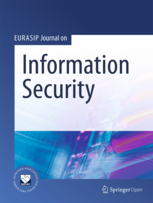Call for papers: Dependable Deep Learning for Security-Oriented Applications
In the last decades, a large number of techniques have been proposed to ensure integrity and authenticity of data in security-oriented applications, e.g. multimedia forensics, biometrics, watermarking and information hiding, network intrusion detection, reputation systems, etc.... The development of these methods have received a new boost in the last few years with the advent of Deep Learning (DL) techniques and Convolutional Neural Networks (CNNs) and, in most cases, the performance of DL-based methods greatly exceed those achieved by classical model-based and standard machine learning approaches. The dependability of these techniques, however, is questionable due to a number of shortcomings, some of which are particularly relevant in security-related applications. This Special Issue aims at providing a venue for research investigating strengths and limits of DL-based tools for security-related applications, and proposing more advanced and powerful tools that go beyond the state-of-the-art in the field.
Despite the initial gust of optimism brought by the advent of DL tools, DL-based approaches suffer from a number of shortcomings, many of which are particularly relevant in security-oriented applications, such as: the need for a huge amount of data representative of all the real word situations (that cannot all be foreseen at training time); the poor robustness to adversarial attacks; the difficulty of getting properly trained models which capture discriminative features without relying on confounding factors; etc.… Given the superior capabilities offered by DL tools, it is then worth to investigate the dependability of DL techniques for security applications, by revealing strengths and limits of DL-based tools, and proposing novel and more advanced approaches to overcome them.
-
Adversarial Deep Learning, Adversarial examples in generative models
-
DL understandability
-
Secure DL classification/learning
-
(applications-related) DL for multimedia forensics and counter-forensics
-
Biometrics and authentication based on DL
-
DL for watermarking and information hiding
-
DL for steganography and steganalysis
-
DL for network intrusion detection
Deadline for submissions: 15 June 2019
Lead Guest Editor
Benedetta Tondi, University of Siena, Italy
Guest Editor
Mauro Barni, University of Siena, Italy.
Benedetta Tondi, University of Siena, Italy.
Slava Voloshynovskiy, University of Geneva, Switzerland.



